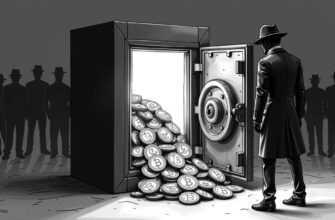NFTs (Non-Fungible Tokens) are making waves, changing how we think about ownership in the digital age. Companies like Animoca Brands are at the forefront of this revolution, recently raising $10 million to expand Mocaverse—a collection of membership NFTs. This article explores how NFTs are influencing crypto sports betting, weighing the pros and cons along the way.
Understanding NFTs in a Decentralized World
At their core, NFTs offer a new way to claim ownership over digital assets. They ensure that what you own is unique and verifiable. In decentralized ecosystems, these tokens foster a sense of belonging and equity among users. Take Web3 gaming as an example: players can truly own their in-game assets, moving them freely across platforms and even monetizing them.
Platforms like Mocaverse take it a step further by using blockchain to guarantee transparent ownership. This is crucial for building a more equitable internet—one where users have real stakes in the ecosystems they participate in.
The Intersection of NFTs and Crypto Sports Betting
So how do NFTs fit into crypto sports betting? For starters, they can supercharge user engagement by offering unique digital collectibles that enhance the betting experience. Imagine owning an NFT from your favorite sports team that unlocks special betting opportunities or exclusive content across various platforms.
But it’s not just about enhancing user experience; there’s also money to be made. Sports teams can create new revenue streams by selling unique digital assets—think exclusive event access or personalized experiences—all while boosting fan loyalty. We’ve already seen many teams jump on board with Web3 sponsorships, offering fans cool new ways to engage through blockchain technology.
The Good, The Bad: Weighing NFT Investments
Investing in something like Mocaverse comes with its fair share of risks and rewards. On one hand, you could diversify your portfolio with some unique assets that might appreciate significantly over time. Some NFTs even grant access to exclusive communities or events—if you’re into that sort of thing.
On the flip side? The NFT market is notoriously volatile; prices can swing wildly in short periods. Predicting future value is almost impossible, and many investors find themselves holding bags after entering at peak hype levels. There’s also minimal regulation in this space, leaving investors vulnerable to fraud and other legal headaches—not to mention security risks like hacking and phishing.
Let’s not forget about environmental concerns either; traditional blockchains have hefty energy demands that contribute to climate change.
Looking Ahead: The Future of NFTs in Decentralized Platforms
Despite these challenges, the future seems bright for NFTs within decentralized ecosystems. Innovations aimed at improving scalability and user experience are underway. Take DeFi for example: here, you can use your NFT as collateral for loans without having to sell it off—a win-win if you’re looking to retain ownership while accessing liquidity.
In crypto sports betting specifically, we might see entire new frameworks built around unique digital assets designed specifically for engaging fans while ensuring fair play through transparency.
Summary
The integration of NFTs into platforms like Mocaverse enhances equity by providing robust mechanisms for ownership while increasing liquidity through fractionalization. However, realizing these benefits requires careful navigation of issues related to scalability and regulatory compliance.
As we move forward into this evolving landscape—where projections suggest massive economic potential—the companies leading the charge seem well-positioned to reshape our understanding of engagement through things like crypto sports betting exchanges.








